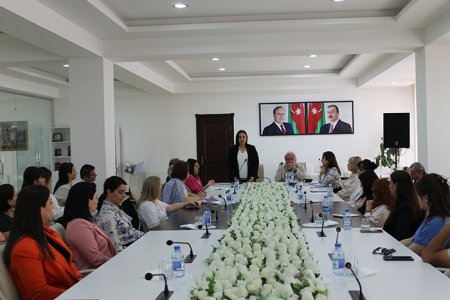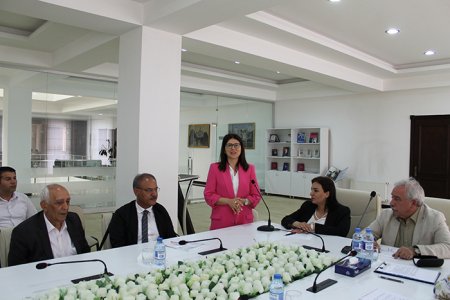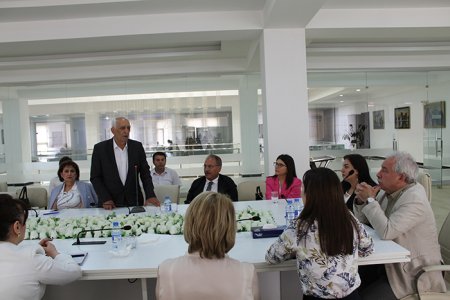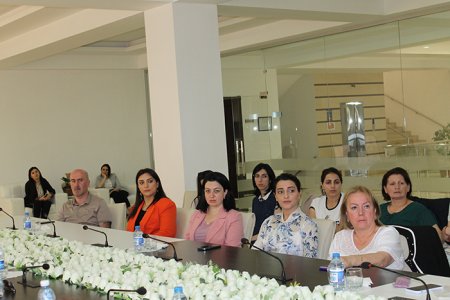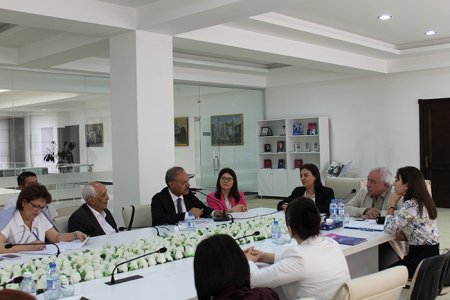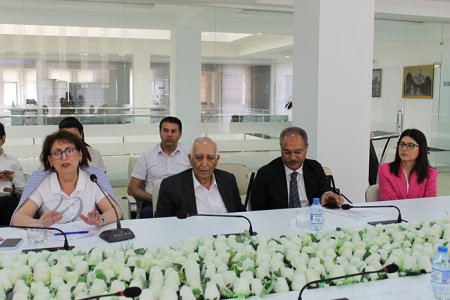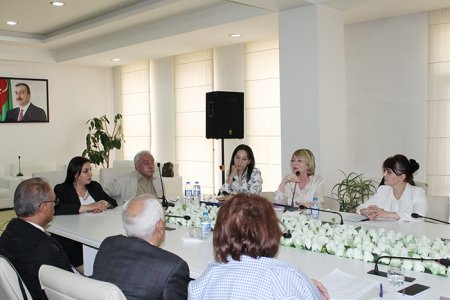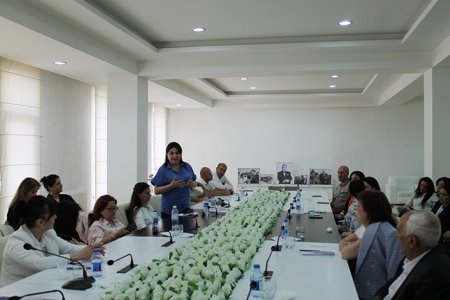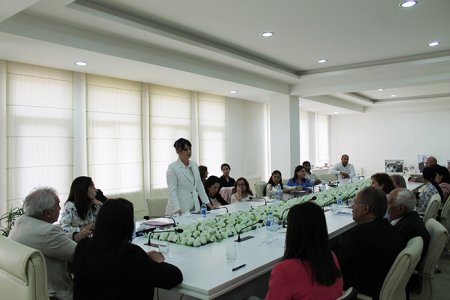An international seminar on the topic "Problems of family and culture in the context of gender equality" was held in Guba
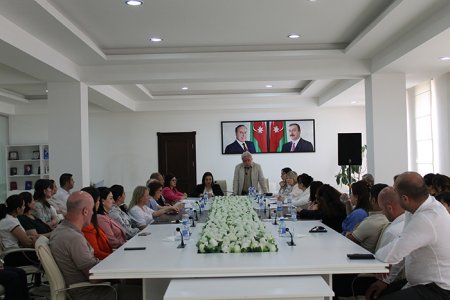 In continuation of international events, the Institute of Philosophy and Sociology of ANAS together with the State Committee for Family, Women and Children Affairs, held a seminar in Guba "Problems of family and culture in the context of gender equality". The event was held at the Heydar Aliyev Center with the participation of a representative of the Executive Power of Guba.
In continuation of international events, the Institute of Philosophy and Sociology of ANAS together with the State Committee for Family, Women and Children Affairs, held a seminar in Guba "Problems of family and culture in the context of gender equality". The event was held at the Heydar Aliyev Center with the participation of a representative of the Executive Power of Guba.The director of the Institute of Philosophy and Sociology, DSc. Ilham Mammadzada, having declared the seminar open stressed that this is the first sub-regional project in the history of the Azerbaijan National Commission of UNESCO, in which three countries (Azerbaijan, Turkiye and Bulgaria) participate. Further, the professor talked about family models, the impact of economic, spiritual and cultural problems on families, the role of social networks and new technologies as well as the importance of international cooperation in these and other issues.
The seminar was attended by the Deputy Head of the Executive Office of the Guba region - Head of the Department of Socio-Political and Humanitarian Affairs Saida Abasova, Head of the Department of Economics of Ataturk University, prof. Kerem Karabulut (The role of education in ensuring gender equality in the family), expert of the State Committee for Family, Women and Children Affairs Aytekin Hajiyeva, (State Policy and Gender Strategy), Scientific Secretary of the Institute of Philosophy and Sociology of ANAS, Associate Professor Sevinj Hasanova (Gender equality in the family: traditions and trends), Head of the Department of International Relations of the Institute of Philosophy and Sociology of ANAS, Associate Professor Zohra Aliyeva (National and International Strategies for Achieving Gender Equality) and Deputy Director of the Institute of Philosophy and Sociology of the Bulgarian Academy of Sciences, Associate Professor Albena Nakova (Ethnic Aspects in Modern Family Relations).
The seminar attended by officials of the organizing institutions and representatives of the district community, aroused great interest of the participants, and the discussions covered many social and ethical issues, from analyzing forms of gender discrimination to finding ways to prevent them.
